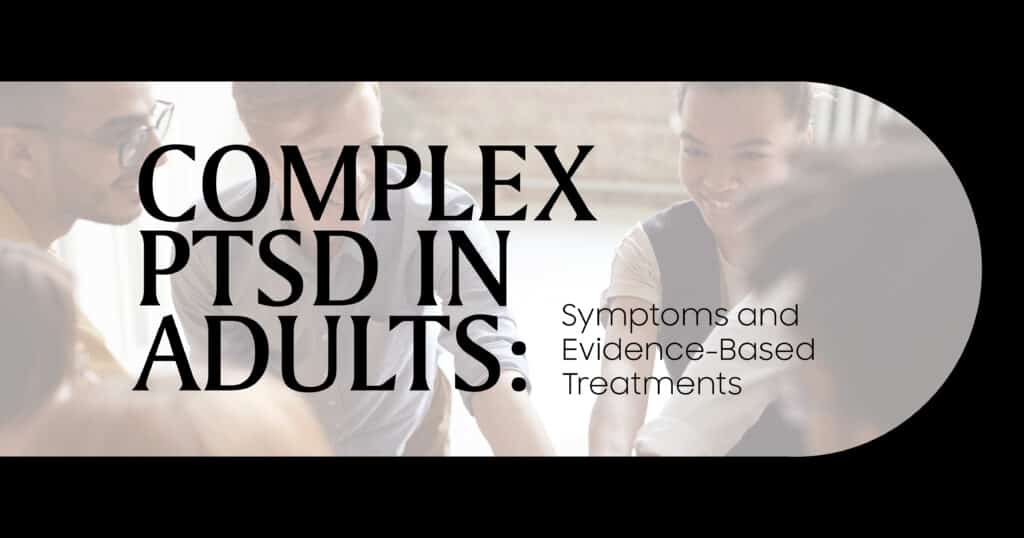Complex Post-Traumatic Stress Disorder (C-PTSD) is a unique and challenging condition that can develop after prolonged exposure to traumatic events. While similar to traditional PTSD, Complex PTSD is distinguished by the presence of additional symptoms and complexities. Understanding the nuances of Complex PTSD in adults is essential for providing effective treatment and support.
Unraveling the Symptoms of Complex PTSD
What is Complex PTSD?
Complex PTSD is a psychological condition that arises from repeated exposure to traumatic events, such as childhood abuse, domestic violence, or prolonged captivity. Unlike PTSD, which typically stems from a single traumatic incident, Complex PTSD develops over time and is often accompanied by disturbances in self-identity and interpersonal relationships.
Symptoms of Complex PTSD
- Emotional dysregulation
- Persistent feelings of shame or guilt
- Distorted self-perception
- Difficulty trusting others
- Difficulty maintaining healthy relationships
- Dissociation or feeling detached from oneself
Exploring Evidence-Based Treatments
Trauma-Focused Therapy
Trauma-focused therapy, such as Eye Movement Desensitization and Reprocessing (EMDR) or Trauma-Focused Cognitive Behavioral Therapy (TF-CBT), is often recommended for individuals with Complex PTSD. These therapies help individuals process traumatic memories, challenge negative beliefs, and develop coping skills to manage symptoms.
Mindfulness and Self-Compassion Practices
Practicing mindfulness and self-compassion can be valuable tools for individuals with Complex PTSD. Mindfulness techniques, such as meditation and deep breathing exercises, promote present-moment awareness and emotional regulation. Similarly, cultivating self-compassion fosters acceptance and kindness toward oneself, counteracting feelings of shame and self-blame.
FAQs about Complex PTSD
Can medication help manage symptoms of Complex PTSD?
While medication may be prescribed to alleviate specific symptoms, such as depression or anxiety, it is not typically considered a primary treatment for Complex PTSD. Therapy and other psychosocial interventions are often more effective in addressing the underlying causes of the condition.
Is Complex PTSD curable, or will it always be a lifelong struggle?
While there is no “cure” for Complex PTSD, many individuals find relief from symptoms and experience significant improvements in their quality of life with appropriate treatment and support.
How can I support a loved one with Complex PTSD?
Supporting a loved one with Complex PTSD involves providing empathy, validation, and understanding. Encouraging them to seek professional help and offering practical assistance can also be beneficial.
Wrapping Up
In wrapping up, navigating the complexities of Complex PTSD in adults requires a comprehensive understanding of the condition and its treatment options. By recognizing the symptoms and exploring evidence-based treatments, individuals can take steps toward healing and reclaiming their lives from the grip of trauma.





